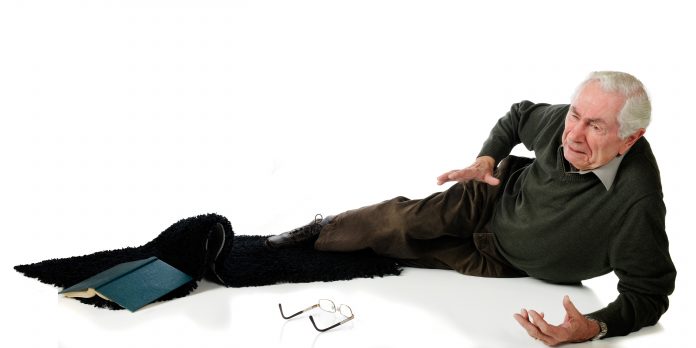September 22 is Falls Prevention Awareness Day. This is a great opportunity to bring attention to the topic which is a great concern for seniors, caregivers, and their families. We’d like to offer some tips and advice that can help prevent falls and keep seniors safe.
So what may happen with a senior falling?
Simply put, falls can change your life. Thousands of senior men and women each year break bones and end up being hospitalized from falling. With age, the aftermath of a fall can be difficult to recover from. It is the leading cause of injury among seniors.
Aging can bring its share of changes. Medication side effects, diminished sight and hearing, muscle weakness and coordination all can contribute to falls. In addition, osteoporosis causes bones to be more brittle which can make the aftermath of falling more severe. A broken bone may not sound serious, but with age it can be the beginning of more serious issues. The good news is there are simple measures you can take to put yourself at less risk.
Talk to your Health Care Provider
-Ask about bone density testing. This can analyze the strength of your bones and if needed medication can be prescribed to strengthen and harden bones.
-Talk to your physician and devise an exercise plan that suits your needs. Regular exercise will build strength and stability.
-Regular vision and hearing testing is key to preventing falls. Small differences in sight and hearing can make you less balanced on your feet.
-Ask about medication side effects. Many medications can cause dizziness and affect your coordination and balance.
What You Can Do
-Inquire about wearable urgent response devices. These can detect falls and connect you with agents that can connect you with help in case of an emergency.
-Reduce alcohol consumption for improved balance and reflexes.
-Make sure to always stand up slowly after resting or laying down. Certain medications and drops in blood pressure can cause dizziness when getting up from a prone position.
-If needed use a cane or walker.
-Wear proper rubber-soled supportive shoes.
In Your Home
-It’s important to not let your home get too hot or cold. This can cause dizziness as well.
-Always use the handrails when going up and down the stairs. Even consider a handrail device or a stairlift.
-Don’t stand on chairs to reach high items. If possible, purchase and use a reach stick to grab things from high ledges or cupboards.
-Ensure proper lighting.
-Make sure all carpets are properly attached to the floor. Your foot can catch a loose end and make you fall.
-Install rails or grab bars near toilets and inside the tub and shower.
-Ensure cords and wires are clear from walking paths.
Fall prevention may not be an alluring subject, but it’s an important one. By using these tips we hope they can help prevent falls and keep people safe and healthy.


